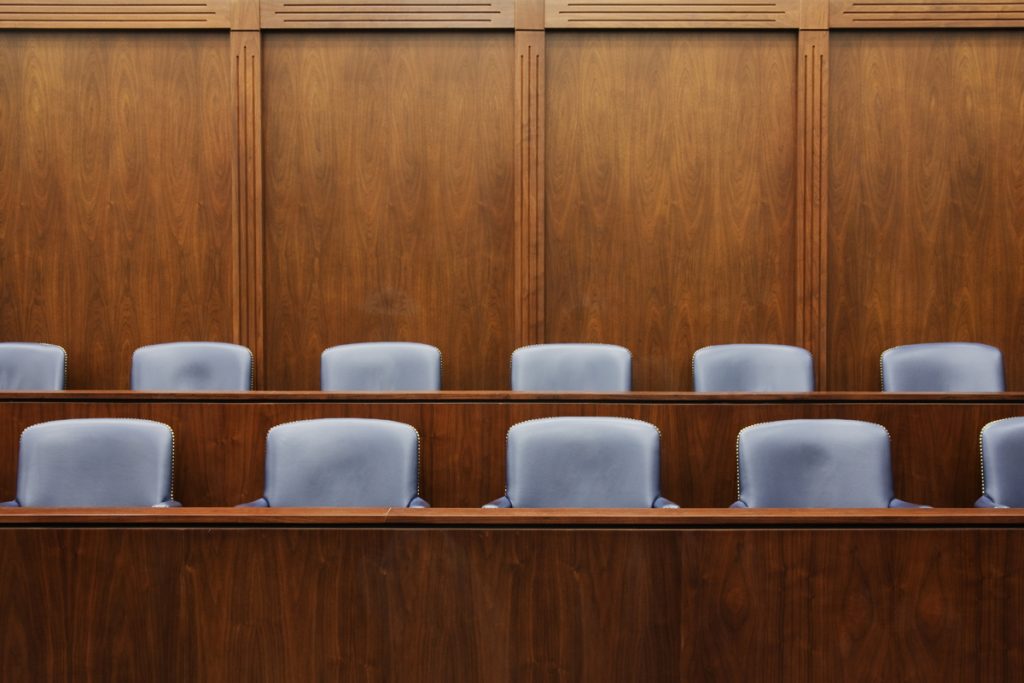What is the Process of a Criminal Trial?

Only a small number of cases ever go to trial. Often, plea cases are accepted whereby a defendant pleads guilty in return for a lesser offense. It is important trials follow rules that protect the rights of the defendant while maintaining the efficiency of the court system. Read on to learn more.
Voir Dare
Voir dare is the process of interviewing potential jurors. Both the defense and prosecution may question potential jurors for conflicts of interest or biases. A certain amount of “preemptory challenges” can be utilized to remove a potential juror without giving a reason though they are not allowed to discriminate on the grounds of gender, race, or ethnicity.
Opening Statements
Once in place, the jury will hear each side who want to offer an opening statement, intended as a summary of the case.
Prosecution Evidence and Witnesses
The state will first present their case. They have the burden of proof to meet all the elements of the alleged offenses. They may call witnesses and introduce other evidence to aid them in doing so.
Defense Evidence And Witnesses
The defendant can present evidence as well as witnesses as a rebuttal to the case made by the state. There is no obligation to testify and they cannot be called as a witness by the prosecution as the fifth amendment affords the privilege against self-incrimination. As prosecutors carry the burden of proof, the defendant does not have to prove their innocence. However, they may have a burden of proof, for example, if they use self-defense insanity or entrapment as a reason for their actions.
Closing Arguments
Each side can present closing arguments once the presentation of evidence has been completed. These arguments summarize their cases and can highlight flaws in the reasoning or evidence of the opponent.
Jury Charge
The judge will give instructions to the jury that may include questions regarding the charged offense. Both the defendant and the state can submit proposed jury charges to the court.
Jury Deliberations and Verdict
The jury will then retire for deliberation. On occasion, jurors may be sequestered but they are normally told not to discuss the case. If a unanimous verdict cannot be obtained, the judge may declare a mistrial.
Post-Trial Motions
When a guilty verdict has been entered by a jury, post-trial motions can be brought by the defendant such as an acquittal or motion for judgment or a new trial. The defendant may appeal if the post-trial motions are denied by the court.
Source: https://www.justia.com/criminal/procedure/stages-criminal-trial/
Need A Criminal Defense Lawyer In Scottsdale or Phoenix?
Canterbury Law Group’s criminal defense lawyers in Phoenix and Scottsdale will defend your case with personal attention and always have you and your best interests in mind when offering legal solutions. Call today for an initial consultation! We handle criminal defense cases in all areas of Phoenix including Mesa, Tempe, Chandler, Maryville, Apache Junction, and more.
We are experienced criminal defense attorneys and will fight for you to obtain the best possible outcome. Our firm will rigorously represent you, so you can get on with your life. Call today for an initial consultation! 480-744-7711 or [email protected]
*This information is not intended to be legal advice. Please contact Canterbury Law Group today to learn more about your personal legal needs.

